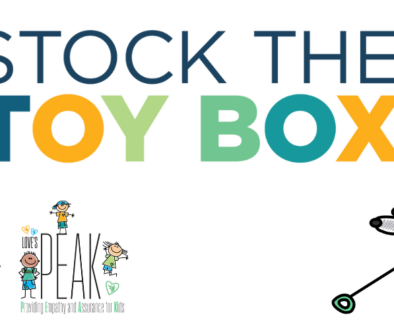Taking off the mask: Experiencing grief and finding support
With content from the Moments Matter bereavement newsletter

With Halloween quickly approaching, many of us are busy with last-minute preparations: buying candy, putting up decorations, and picking out costumes. As a society, we love to dress up and play the role of someone or something else for a few hours. It’s all fun—laughing with friends, eating candy, and enjoying the temporary escape.
You might be wondering, “What do costumes have to do with grief?” The answer lies in how we sometimes present ourselves to the world after a significant loss. Much like we put on costumes for Halloween, grief can feel like wearing a mask—one that shows others we’re okay, even when we may not be.
Grief is complex and unique to each person
While the typical stages of denial, anger, bargaining, depression, and acceptance offer a framework, not everyone follows this path in the same way or at the same pace. For many, grief is far from linear. It’s messy, unpredictable, and often shows up long after the tasks of settling estates, closing accounts, and sorting through belongings are complete. Months may pass before emotions bubble to the surface, like a witch’s brew that’s been simmering unnoticed.
If you find yourself feeling overwhelmed by grief, know that you’re not alone. Mountain Valley’s support team understands the many faces of grief, and we’re here to support you.
Many of us, especially caregivers, are used to wearing the mask of being “the strong one”—the responsible, dependable person who makes sure everyone else is okay. But it’s okay to take off that costume. Letting your guard down and allowing yourself to feel sadness, anger, or even guilt is a natural part of the healing process.Sadness is typically the most expected response to death. It’s closely tied to feelings of emptiness and loss, but it often travels with other emotions like anger or guilt. For caregivers, guilt is a frequent companion. You may feel it right after a loved one’s death, especially if you feel relief that their suffering has ended. This doesn’t make you a bad person. Watching someone you love suffer can be incredibly hard, and it’s natural to feel relief when their pain finally stops. Guilt may also show up later, as life begins to move forward, leaving you questioning whether you’re allowed to feel happy again.
This emotional complexity is completely normal. The human heart can hold many feelings at once—relief, sadness, anger, guilt—and none of them invalidate each other.
Mountain Valley offers grief support for spouses, teens and children, siblings, parents, and friends.
At Mountain Valley, we offer grief support services for people navigating this emotional journey. Whether you’ve lost a spouse, parent, sibling, or child, we have resources to help. Our monthly grief support groups provide a safe space to share your experience, and our bereavement counseling services are available for those who prefer one-on-one support. We also provide grief counseling for teens and children, as we know young people often struggle with loss in ways that are different from adults.
We can provide grief support services for spouses to guide those mourning the loss of a life partner. Losing a spouse can leave an enormous hole, but sharing your journey with others who understand can help you begin to heal.
The key to healing is realizing you don’t have to wear that emotional mask forever. When you’re ready, we’re here to walk with you. Our compassionate grief support team can help you through the difficult moments and provide guidance on coping with loss. All of our bereavement services are free, and they’re open to anyone in the community—not just the families of our patients.
If you’re interested in attending one of our grief support groups or want to learn more about our bereavement counseling services, you can find our schedule and more information here.
It’s okay to take off the costume and let your true emotions show. Grief is a journey, and at Mountain Valley, you don’t have to walk it alone.











